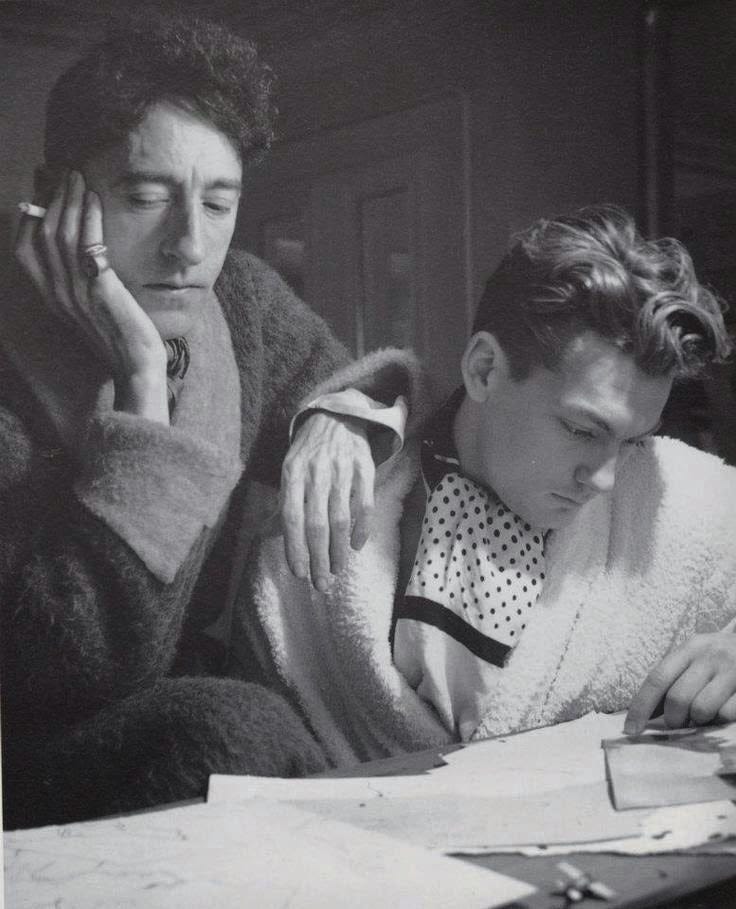Jeannot & Jean
Cocteau's greatest love made him one half of the first gay power couple.
The first modern, gay power couple started with the simple recognition of an opportunity: a young and unknown actor recognized the effect his impossible beauty had on a celebrated playwright and capitalized on it.
In his memoirs, written decades after the genius playwright’s death and after their artistic collaborations had entered the canon of film history, the young actor confessed that he fell madly in love within ten days, regardless of his initial intentions.
The love story between the handsome young actor and the Poet has become historic for its ripple effect on not just the history of art and film, but queer history, too.
So much so, that when I am in Paris, I often joke that I can tell the sexual orientation of a man based on their reaction when I tell them what it is I do. The straight, French men always feel the need to immediately explain Cocteau’s work and life to me – even when they have heard that I am an expert in this field. The men on the other, more fluid end of the spectrum of sexuality will regard me with reverence, and usually want to fan out about this icon of queer, French culture. This effect is due to this aforementioned romance between Jean Cocteau and his most enduring muse, the actor Jean Marais, whom he called ‘Jeannot.’
Jean Marais first saw Jean Cocteau’s drawings at the age of 24, in 1937. By then, Cocteau was in his late forties and already quite famous; his first film had already been released to much controversy, and his various plays, ballets, novels and poetry were well established in the French cultural consciousness by that point. A hungry young actor, he knew that the older man could be his ticket to success. And, like Jean Desbordes before him, he knew that Cocteau’s sexuality was something he could use to his advantage.
Jean Marais was born in the seaside town of Cherbourg, to a veterinarian father and a mother who, he would come to learn, was in and out of prison due to kleptomaniac tendencies. Jeannot knew he was attracted to men early, and was rebellious, going so far as to be kicked out of school for flirting with his teachers. An outspoken man his entire life, Jeannot made his way to Paris when it became evident that his lack of desire to hide his sexuality would not be acceptable to his small town. Jean Cocteau being the north star to this community at the time, he set his goal and made his way out.
According to Marais, although his initial intentions for meeting Cocteau were perhaps less than romantic, he nonetheless fell deeply in love with the artistic genius within ten days. On Cocteau’s end, Jeannot was an instant muse. Within a year, he cast Marais as Galahad in his play Les chevaliers de la table ronde, and wrote one of his most enduring works, Les Parents terribles, for him – which was supposedly inspired by his family life back in Cherbourg.
Les Parents terribles was, like more or less all of Cocteau’s works, an instant scandal when it premiered on the stage in 1938. It was, in many ways, the seed from which much of the couple’s later treatment – and notoriety – grew. Les Parents terribles was critically lauded, yet immediately lambasted by the far-right movement.






